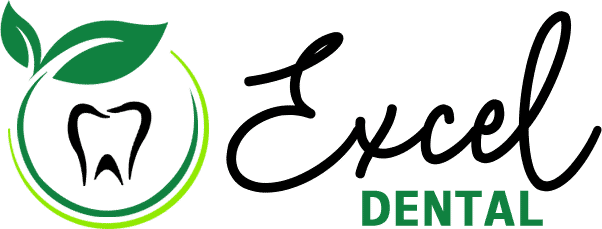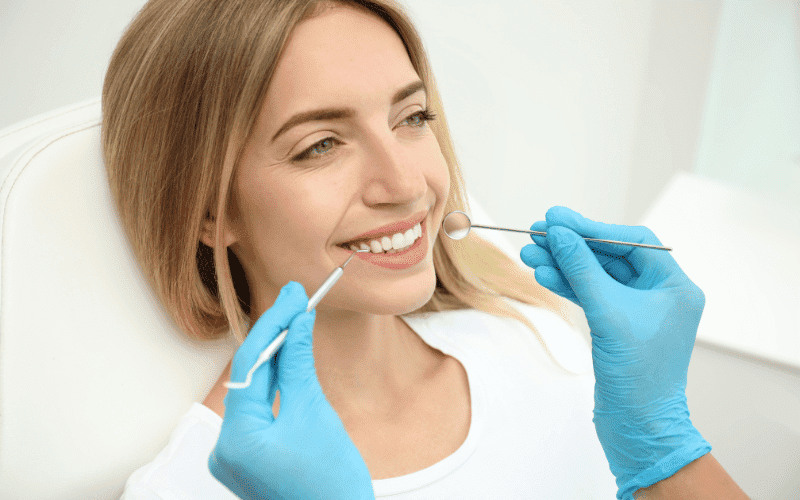Cosmetic dentistry offers additional benefits in addition to improving the appearance of your smile. By enhancing the look of your teeth, cosmetic dentistry can also positively impact your oral health.
This blog explores how cosmetic dental procedures can improve functionality, encourage better oral hygiene, and prevent further damage. Our goal is to draw attention to the many advantages of cosmetic dentistry and the reasons it might be worthwhile for your general health.
What is Cosmetic Dentistry?
The term cosmetic dentistry describes dental procedures meant to improve the way your teeth, gums, and smile look. It includes a variety of operations intended to enhance cosmetic results and maybe enhance oral health.
One of the most well-liked cosmetic procedures is teeth whitening. It involves removing stains and discoloration, leading to a brighter, more attractive smile.
Applying extremely thin shells of porcelain or composite resin to the front of teeth is called veneering. They address imperfections such as chips, gaps, or discoloration, providing a uniform and natural-looking smile.
Applying a tooth-colored resin by bonding allows for the restoration of microscopic flaws like chips or gaps. It is a simple and efficient method to enhance the look and feel of your teeth.
Crowns cover and protect damaged or decayed teeth. They restore strength and functionality while also improving the tooth’s appearance.
Invisalign is a clear aligner system that corrects misalignments discreetly. Unlike traditional braces, Invisalign is removable and less noticeable, providing a comfortable alternative for straightening teeth.
These procedures enhance the visual appeal of your smile and play a role in improving oral health by correcting structural issues and protecting vulnerable teeth.
Cosmetic Dentistry vs. Traditional Dentistry
Cosmetic and traditional dentistry serve different but complementary roles. Traditional dentistry focuses primarily on the prevention, diagnosis, and treatment of oral health issues. It aims to maintain oral health and address functional problems such as cavities, gum disease, and bite issues.
In contrast, cosmetic dentistry emphasizes improving the appearance of your smile. While cosmetic procedures often address aesthetic concerns, they can also offer functional benefits. For instance, a cosmetic dentist might use veneers to correct alignment issues, which also improves bite function.
Despite their different focuses, cosmetic and traditional dentistry are interconnected. Many cosmetic procedures, such as crowns or bonding, help restore function while enhancing appearance. Aesthetic improvements can motivate patients to maintain better oral hygiene, leading to overall better dental health
For a comprehensive approach, consider visiting a specialized cosmetic dentist in Missouri City who can integrate both cosmetic and traditional care to achieve optimal results.
Oral Health Benefits of Cosmetic Dentistry
Improved Functionality: Procedures like veneers and crowns do more than just enhance your smile—they restore bite function. Damaged or decayed teeth can compromise chewing and speaking.
Crowns cover and protect these teeth, while veneers can correct misalignments and imperfections. Both solutions help ensure that your teeth function correctly.
Enhanced Self-Care Habits: A beautiful smile can be a powerful motivator for improved oral hygiene. When you are proud of your smile, you are more likely to engage in diligent brushing and flossing. Cosmetic enhancements can make oral care a more enjoyable and regular part of your routine.
Correction of Misalignments: Treatments like Invisalign address misalignments discreetly and effectively. Straighter teeth improve your bite, making it easier to chew and speak. Proper alignment also reduces the risk of uneven wear and tear, which can lead to other dental issues.
Prevention of Further Damage: Crowns and bonding are examples of aesthetic restorations that can stop additional damage to your teeth. For example, bonding can seal small cracks or chips, reducing the risk of decay. Veneers protect the surface of teeth that are prone to wear, preventing additional issues.
These benefits demonstrate how cosmetic dentistry enhances the appearance of your smile and supports overall oral health. Investing in cosmetic procedures can lead to a healthier, more functional, and beautiful smile.
Maintaining Oral Health After Cosmetic Procedures
Post-treatment care is crucial for ensuring the longevity and effectiveness of cosmetic dental work. After undergoing a cosmetic procedure, follow your dentist’s specific aftercare instructions to maintain optimal results. This often includes avoiding certain foods and beverages that can stain or damage the new work.
To keep an eye on the state of your cosmetic modifications and general oral health, periodic checkups are vital. Your dentist will evaluate the integrity of crowns, veneers, and other treatments during routine exams. They are able to quickly resolve any problems and make any necessary corrections.
Good oral hygiene practices remain vital. Maintain your daily flossing routine, twice-day brushing schedule, and use of mouthwash as directed. These habits help prevent plaque buildup and ensure that your teeth and gums remain healthy.
By adhering to these guidelines, you can maximize the benefits of your cosmetic procedures and enjoy a vibrant, healthy smile for years to come.
Cosmetic dentistry offers more than just a beautiful smile; it can enhance your overall oral health. Procedures like whitening, veneers, and Invisalign improve functionality, encourage better hygiene, and prevent further damage.
If you are considering cosmetic enhancements, explore your options with a qualified dentist. Consult with a professional cosmetic dentist to discover how these treatments can benefit your smile and oral health.


